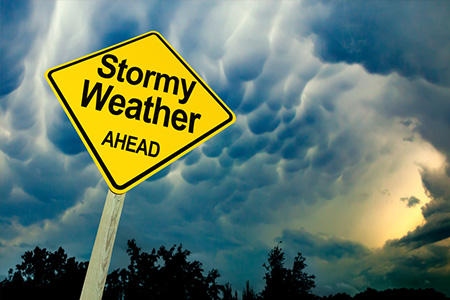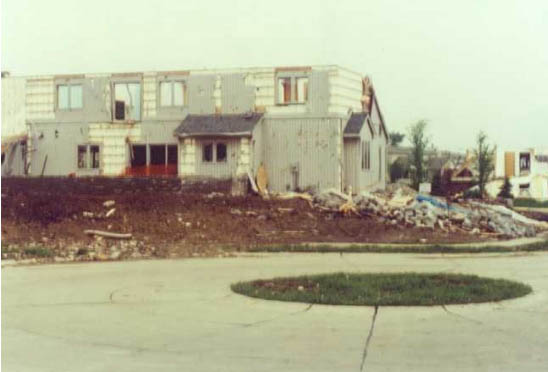
The weather is getting increasingly unpredictable with tornadoes, floods, and hurricanes wreaking havoc on lives and property. It’s no surprise that homeowners are opting for structures they know can resist adverse weather phenomenon to keep their families and investments safe. ICFs are being touted as the best defense against inclement weather, here’s why.
What are ICFs?
Insulated Concrete Forms (ICFs) are expanded polystyrene (EPS) blocks that fit together to form wall structures. These structures are reinforced with metal rebar and then braced. The hollow EPS forms are filled with concrete, forming a solid structure that is resistant to fire, high winds, and flooding.
The EPS panels provide an insulation R-value of 20 and, when combined with the concrete thermal mass, temperature fluctuations inside the home are significantly reduced. When ICFs are used in conjunction with high-quality windows and roofing, homeowners can expect a 30-50% savings on heating and cooling costs.
ICF homes are resistant to mold, insects, and fire and are 30% quieter.
Withstanding Strong Winds
ICFs have withstood the test of storms and there have been extensive studies done on their efficacy to withstand flooding and strong winds. A Texas Tech University study investigated the strength of wall assemblies by shooting 2 x 4 wood slats at the walls at 100 mph to simulate flying debris. The slats made little impression on the ICF walls. From the study: “The strength and durability of concrete walls offer unmatched resistance to the devastation of major storms. Concrete homes are less likely to suffer major damage from debris than conventionally framed homes. This greater measure of built-in safety makes cement-based ICF construction systems the quality choice for your new homes.”
ICF are also designed to withstand the strong winds associated with storms and homes constructed with Amvic ICFs are able to withstand tornadoes up to EF5 with wind speeds of over 250 mph. FEMA recommends ICFs as an effective solution for disaster-resistant homes.

In Urbana, Illinois, this house was directly in the path of an F3 tornado which ripped off the roof. Luckily, the ICF walls withstood the onslaught and saved the owners and their pets from injury. All the homes in the vicinity suffered 100% damage, “When the city engineer came out to look, he was absolutely amazed,” said the owner.
Protection from Flooding
Thanks to their concrete structure, ICFs don’t rot or mold and are not affected by insects as is the case with wood-frame structures. When traditional homes are flooded, organic materials such as wood are easily infiltrated by moisture which can result in the growth of mold and mildew. The use of EPS and concrete in ICF homes reduces the risk of mold and mildew and the increased strength of the walls make it easier to resist the forces that floods place on your home.